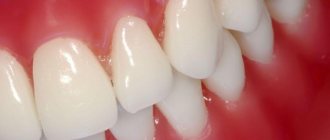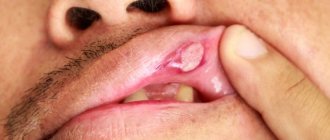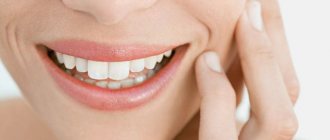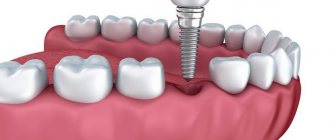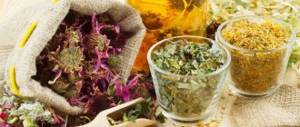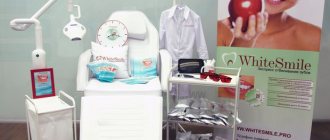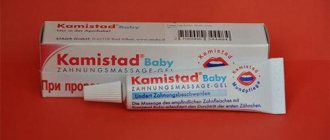September 12, 2020 Last revised: September 12, 2020 Medicinal products
Stomatitis is a common occurrence in children and causes severe pain. It is characterized by the appearance of infectious foci in the oral cavity, which appear as ulcers. The disease is difficult for young children to tolerate, so doctors prescribe local painkillers to relieve discomfort. Kalgel is a safe and affordable remedy.
Compound
Kalgel is a combined drug that has an antimicrobial and anesthetic effect, so it is used for stomatitis and teething. The product is produced in the form of a yellow-brown gel with a soft and uniform structure. Kalgel has a specific smell and taste of caramel. The drug is distributed in aluminum tubes of 10 g.
Calgel is gently rubbed with clean fingers into the inflamed areas of the gums. It is allowed to apply the product six times a day, but at intervals of half an hour.
The gel should only be rubbed into the inflamed areas of the gums. These are swollen and thickened areas that are characterized by intense redness. If the inflammation is complicated by a purulent process, yellowish accumulations appear, and with a fungal infection, whitish spots appear.
The main composition of Kalgel:
- lidocaine hydrochloride;
- cetylpyridinium chloride.
Auxiliary components:
- ethanol;
- xylitol;
- glycerol;
- caramel;
- sorbitol solution;
- macrogol;
- sodium saccharinate;
- hyaetellosis;
- lauromacrogol;
- levomenthol;
- citric acid monohydrate;
- macrogol glyceryl hydroxystearate;
- sodium citrate;
- levomenthol;
- flavorings.
Each tube of Kalgel contains 10 g of the drug, of which only 43 mg of active substances. Due to the tiny amount of active ingredients, the product has a local effect and is not absorbed into the bloodstream. However, many fillers in the composition repel parents who are convinced that “chemistry” is harmful to the child.
Additional components are needed to ensure shelf life, pleasant taste and additional effects (improving blood flow and digestibility, combating symptoms). These components do not cause any harm to health.
Instructions for use
If teething is not accompanied by inflammation of the oral mucosa, then both drugs can be used. They exhibit pronounced analgesic and distracting activity. After applying dental gels, their ingredients do not penetrate into the bloodstream. Therefore, the development of systemic side effects is completely excluded.
Kalgel - instructions for use
Indications and contraindications
The drug Kalgel is aimed at use in pediatrics, therefore it contains more flavorings and flavoring additives. Cholisal is used not only for teething. It is included in therapeutic regimens for diagnosing periodontitis, gingivitis, and stomatitis. It is used for any inflammatory diseases of the oral mucosa in adults. What is better for stomatitis - Cholisal or Kalgel:
- both drugs disinfect the mucous membranes of the oral cavity;
- Cholisal is more active against pathogenic microorganisms.
Dental gels are good at eliminating both fungal and bacterial infections. Contraindications to their use are hypersensitivity to the ingredients.
Dentists prescribe Kalgel to children from 5 months. One of the contraindications for Cholisal is age under 12 months. It is not used in the treatment of pregnant women, since its safety has not been confirmed by clinical trials. The drug is not prescribed to patients with severe heart, liver and kidney diseases, arterial hypotension.
Side effects
But doctors recommend not using Cholisal in the treatment of children under 3 years of age due to the provocation of excess salivation.
When treated with dental products, a burning and tingling sensation sometimes occurs. It disappears after 3-5 minutes. In rare cases, an allergic reaction develops - swelling and a small rash.
Directions for use and doses
The ingredients included in dental products ensure rapid absorption of active substances. The gels are securely held on the gums and do not enter the stomach when swallowing saliva. A single dose is approximately 0.5 cm of a strip of product squeezed out of the tube.
For pain relief, it is enough to apply the drug to the gums 3-4 times a day, lightly rubbing. You should first remove the resulting plaque with a sterile cloth. The duration of treatment with Cholisal and Kalgel is determined by the doctor, taking into account the speed of teething and the number of teeth.
Properties of Kalgel and its analogues
The drug effectively copes with infections that affect the oral cavity. Thanks to the action of two active substances, the drug anesthetizes and functions as an antiseptic. The anesthetic lidocaine blocks nerve patency by acting on sodium channels. Cetylpyridinium chloride has an antiseptic effect, which prevents bacteria from multiplying.
The main indication of Kalgel is the relief of pain during teething in children from 5 months. The product relieves signs of inflammation (swelling, pain). Therefore, sometimes the drug is prescribed to children during stomatitis. Adults are most often prescribed more powerful medications for the infection.
Kalgel's analogues
- Dentinox. The product helps relieve teething pain exclusively in children. Use 2-3 times a day until the tooth erupts completely.
- Kamistad. Analgesic, anti-inflammatory and antimicrobial drug. Allowed from 3 months.
- Doctor Baby. A preparation based on chamomile, calendula, marshmallow root, echinacea and plantain.
- Mundizal. Antiseptic with anti-inflammatory, antimicrobial, antipyretic and analgesic effects. Used for stomatitis and other lesions of the oral cavity. For children under one year of age it is prescribed as a last resort.
Release form and indications for use
Kalgel is produced in the form of a light brown transparent gel of uniform consistency in aluminum tubes of 10 g. It has a sweetish taste and a pronounced menthol smell, does not crystallize when exposed to low temperatures, and melts at body temperature. Per 1 gram of dosage form there are 3.3 mg of lidocaine and 1 mg of cetylpyridinium chloride.
The shelf life is 3 years in a closed tube, 3 months after opening the package.
The use of the drug is indicated for:
- eruption of baby teeth in young children and wisdom teeth in adults;
- for stomatitis of various etiologies as part of complex drug treatment;
- inflammatory pathology of the oral cavity and gums (gingivitis, periodontitis);
- pain after dental and orthodontic interventions;
- burns and injuries to the epithelium of the mouth and tongue;
Stomatitis in a child.
Indications, contraindications and side effects
Kalgel is prescribed to relieve pain during teething in babies five months old. Also sometimes prescribed for stomatitis.
Contraindications:
- bradycardia;
- arterial hypotension;
- intraventricular conduction defects;
- heart failure (stages I-III);
- renal, liver failure;
- hypersensitivity to components.
Parents should not exceed the dosage, as children may swallow the product during sleep and feeding. You should also seek help if unusual symptoms appear.
Kalgel sometimes causes allergic reactions and difficulty swallowing. Some patients experience itching, urticaria, and rarely anaphylactic shock. If allergy symptoms appear, you must stop using the drug. If the allergy does not stop, you should consult a doctor.
The drug is incompatible with soap and anionic surfactants, which are often added to shampoos and gels to increase the amount of foam. The combination is not dangerous, but the soap solution makes the gel useless. Therefore, after application, you should not wash your child with soap or gel, or leave him in a bubble bath.
Anti-inflammatory toothpastes for children –
In the arsenal of oral hygiene products for young children, there are several toothpastes that have an anti-inflammatory effect and reduce gum sensitivity during teething. Their use on an ongoing basis for child oral hygiene will increase the effectiveness of the use of gels for topical use or systemic homeopathic preparations (24stoma.ru).
- Weleda children's toothpaste-gel (from 0 to 3 years)
contains the following active components - calendula extract, alginate, esculin, essential oils of mint and fennel, which have an anti-inflammatory effect. Does not contain sodium lauryl sulfate, preservatives, dyes, fluorine. Price for a 50 ml tube – from 350 rubles (made in Germany).
- Paste SPLAT “BABY Vanilla” (from 0 to 3 years) –
produced in Russia, and the active components are licorice extract, prickly pear extract, arginine, a complex of milk enzymes (lysozyme, lactoferrin, glucose oxidase, lactoperoxidase). Most of these components have an anti-inflammatory effect and reduce the sensitivity of the gums during teething. Price per tube 40 ml from 150 rubles.
- Foam SPLAT “Junior Magic Foam” (any age) –
This teeth cleansing foam contains licorice extract, lactic enzyme complex, as well as creatine and dipotassium glycyrrhizinate. All these components have an anti-inflammatory effect on the oral mucosa during teething. The cost will be starting from 260 rubles (per 50 ml tube).
Treatment principle
It must be remembered that childhood illnesses do not allow self-medication. Even if the drug seems safe, you should first consult with your pediatrician.
Sometimes Kalgel is prescribed for the treatment of stomatitis in adults. The effectiveness of the drug in this case is questionable: some patients note relief from pain, while others complain of a lack of effect.
The principle of use in this case will be similar. It is necessary to apply a small amount of the product to the ulcers, gently rubbing it into the damaged areas. The gel is not recommended for patients with hypersensitivity to lidocaine and the components of the drug.
Dentinox or Kamistad?
Dentinox is a transparent homogeneous substance with a yellowish tint. The smell is menthol with notes of chamomile. If you use dentinox in advance for preventive purposes before the expected tooth eruption, you can avoid the painful consequences of eruption. Dentinox prevents inflammation of the mucous membrane, the occurrence of stomatitis, and pain during further tooth growth.
The composition contains active substances - chamomile flower extract, lidocaine, polidocanol. Auxiliary components – sorbitol, xylitol, saccharin, levomenthol. The drug can be prescribed from the age of four months. Dentinox is contraindicated in the presence of open wounds in the mouth, and in people with hypersensitivity to fructose. Possible side effects in the form of a local allergic reaction, itching, rash, swelling.
Find out more about Dentinox analogues here.
Kamistad - can be used from the age of three months, but with caution and under the supervision of a doctor, since the content of lidocaine in it is high. Without the supervision of a specialist, Kamistad can be used from the age of 12. It contains two active ingredients - lidocaine hydrochloride and chamomile flower tincture. Additionally it contains sterile water, sodium saccharin, benzalkonium chloride, carbomers.
The advantage of the drug is that side effects are rare. They usually manifest themselves as redness and a burning sensation in the gums. Contraindications include hypersensitivity to the components of the gel and children under 3 months of age.
Calgel for teething
The first teeth - the lower incisors - usually appear in children at 6-7 months, although the process can begin at 3-4 months of life, or it can be very late. Teething is a challenge for children and parents. During this period, the child experiences severe discomfort, the gums itch and hurt, so the baby begins to chew on everything that can weaken these sensations. In the process, it is very easy to introduce infection into the inflamed gums.
When the first teeth appear, the temperature often rises, the child becomes irritable and lethargic, sleeps and eats poorly. Many parents are hesitant to give medications to their small child, and the child has to endure the discomfort on his own. But doctors insist that pain during teething can and should be relieved - Kalgel will help.
You should not give your child decoctions and tinctures prepared according to outdated grandmother’s recipes.
There is an opinion that children's teeth grow poorly after Kalgel. Pediatricians have been disproving this myth for years. Teeth can grow slowly only if there is a lack of vitamins and minerals (vitamins A, D, calcium, phosphorus). Only a lack of nutrition can cause delayed teething.
Features of the drug
- Local anesthesia only. The components of Kalgel do not enter the bloodstream, affecting only the gums. Therefore, the drug does not have a systemic effect and does not harm the body.
- The inclusion of an antiseptic in the composition allows you to fight germs that are introduced when a child chews toys. In addition to microbes, the antiseptic destroys fungi and viruses, preventing severe inflammation from developing.
- Kalgel is used to relieve pain during teething and the presence of infectious lesions in the oral cavity. The drug is not prescribed for prophylaxis.
- Kalgel has a number of contraindications. Therefore, you cannot prescribe medicine to your child yourself; an allergic reaction is possible. The drug is not prescribed if lidocaine is intolerant.
- Particular side effects include only local irritation of the mucous membrane during long-term treatment.
- The manufacturer limits the age of use, indicating that Kalgel is approved for children from 5 months, but doctors prescribe it for teething in babies from 3 months.
- If the baby suffers from severe pain, the drug can be applied a second time after 20 minutes.
When teething, only Kalgel is usually prescribed. No additional anti-inflammatory drugs are required, since the drug contains substances that eliminate inflammation. Calgel is usually sufficient to relieve pain, swelling and redness.
However, if your child has a fever (above 38°C), you should seek help. This is due to the fact that children do not tolerate overheating (hyperthermia) well, and they begin to experience convulsions and suffocation.
Description of the drugs Kalgel and Kamistad
Kalgel contains lidocaine hydrochloride, cetylpyridinium chloride and many excipients. Almost tasteless.
The application is similar - rubbed into the sore gum. In addition to the analgesic effect, the medicine also acts as an antimicrobial anti-inflammatory agent. If necessary, can be used up to 6 times a day.
In case of overdose, the following symptoms appear:
- Vomit
- Change in skin color
- Breathing problems
- Palpitations
Unlike Dentinox, Kalgel has a number of contraindications. It works strongly and for a long time, but the price is disappointing, about 300 rubles for a small tube, and a bunch of additives.
Kamistad is an ideal option. Consists of chamomile and lidocaine. Acts as an antiseptic and strong pain reliever. It has a pleasant sweetish taste. Works strongly and for a long time.
When applied, the gums immediately begin to go numb. The effect is long lasting – 4-5 hours. The cost, depending on the pharmacy, is 120-150 rubles.
These two drugs practically do not differ in action - both have a number of positive responses, but their main difference lies in the composition and price.
Application for stomatitis
Kalgel's capabilities are fully revealed in the treatment of stomatitis. When the baby is not yet able to rinse his mouth or make applications, a gel product remains one of the few ways of treatment.
Usually, for stomatitis, the drug is prescribed for 3-5 days, although the maximum course of treatment with Kalgel is a week. For complete pain relief, 4-5 targeted applications of the gel per day are sufficient. You can easily rub the drug into the wounds.
Children's Kalgel has a sweet taste, so children are happy to respond to treatment. For the first time there may be slight resistance, but once the child remembers the caramel taste, it will be easier for the child to accept the procedure.
The gel envelops wounds and effectively relieves pain, which improves the child’s overall well-being, restores appetite and good mood. However, do not exceed the dosage, otherwise vomiting may occur. In some cases, pale skin and breathing problems are noted. An allergy to Kalgel is dangerous in babies under one year of age. With such complications, you should consult a doctor for symptomatic treatment.
